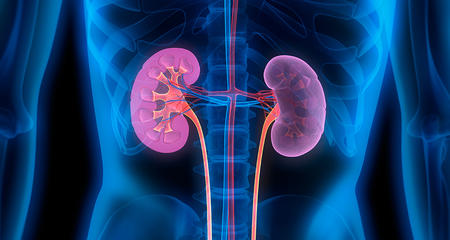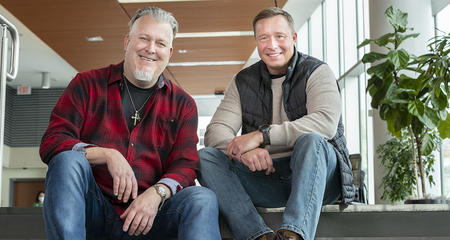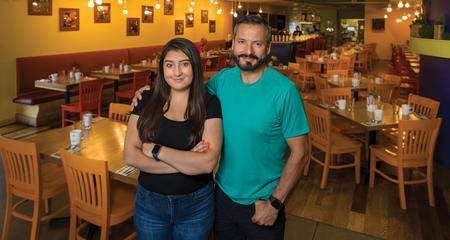Patients with end-stage kidney disease are carefully monitored through Froedtert Hospital’s Kidney Transplant and Nephrology Clinic. For many of these patients, external cleansing of the blood through dialysis provides adequate treatment. When dialysis or other treatments are no longer effective options, a transplant may be recommended.
A “pre-emptive transplant” may also be recommended if a kidney from a living donor is available. In a pre-emptive transplant, recipients avoid dialysis and related procedures, receiving a new kidney earlier in their treatment when they are generally healthier. According to the National Kidney Foundation, research has found that appropriate patients who receive a transplant earlier in their disease process are more likely to experience better outcomes. Kidney transplant may be done alone or with a pancreas transplant for patients with diabetes.
Preparing for Kidney Transplant Surgery
The transplant team provides comprehensive care before, during and after a kidney transplant to make sure patients and their families are fully prepared and that their experience goes smoothly. Prior to the transplant, the team works with patients to reduce possible medical, social and psychological risk factors that may impact their outcomes. Patients and their family members receive education about end-stage kidney disease and the kidney transplant process to enhance their success and long-term outcomes after kidney transplant.
Living and Deceased Kidney Donor Options
Transplants can be done using a kidney from a deceased donor or from a living donor. Living donor kidney transplants are the preferred method of transplant as they generally offer better long-term outcomes and shorter wait times.
Transplants using kidneys from deceased donors are also successful, but this approach requires patients to be placed on a waiting list, and it can take months and sometimes many years before a donated kidney is available. Once a kidney is available, several hours may pass between the time the kidney is identified and the time the transplant is actually performed. The transplant surgery is still planned, but due to the uncertain timing, it is done on an emergency basis.
Kidney Transplant Surgery
For transplant recipients, the kidney transplant surgery generally lasts about three or four hours and involves the following steps:
- Prior to surgery, patients are given general anesthesia that allows them to sleep through the procedure.
- Once the anesthesia is in effect and the patient is asleep, the transplant surgeon makes an incision in the lower abdomen.
- The donated kidney is then placed in the patient’s abdomen and attached to the new blood supply and the ureter to the bladder.
- The original kidney will be left in place unless the patient has had repeated infections, uncontrollable hypertension or problems with urine backup.
- Once all of the connections to the new kidney are made, the surgeon closes the incision and the patient is moved to a recovery area.
Kidney Transplant Recovery and Follow-Up Care
Following surgery, patients receive care in our dedicated transplant intensive care unit (TICU). Nurses staffing the TICU are specially trained to care for kidney transplant patients. Patients will stay in the hospital for a few days. The initial recovery time after the surgery is four to eight weeks. However, living with a new kidney requires a life-long commitment to a healthy diet and physical activity routine, along with a strict regimen of medications.
Medications, primarily antirejection drugs (immunosuppressants), protect the new organ from rejection. In any organ transplant procedure, the recipient’s body may consider the new organ a foreign object and try to eliminate or reject it. To protect the new organ, patients must take these medications the rest of their lives.
Because excellent follow-up care is critical to maintain and enhance a transplant patient’s long-term survival, Froedtert Hospital offer a multidisciplinary Kidney Transplant Clinic to provide a central location to continue care. Our goal is to optimize each patient’s kidney function and overall health after kidney transplant. Dedicated post-transplant coordinators work with our patients to coordinate their transplant follow-up care.
For More Information
Learn more about the patient experience through the Transplant Center.
Recognized as High Performing by U.S. News & World Report
Froedtert Hospital is nationally ranked in urology by U.S. News & World Report. Froedtert Hospital is also recognized as high performing in three adult specialties and 16 procedures and conditions, including kidney failure treatment.More to Explore





